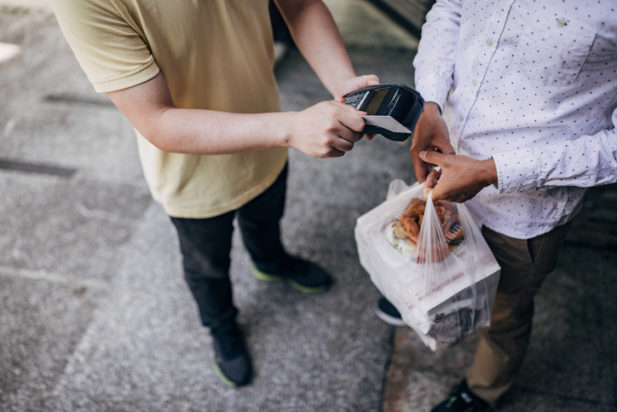Frequently Asked Questions – Food Delivery Service Insurance

• Why do I need extra insurance to drive for Uber Eats of SkipTheDishes?
Most drivers in Ontario have insurance policies on their vehicle that assume the vehicle is used only for personal use, i.e. travelling to and from work, running errands, visiting friends/family, etc. However, once you begin delivering food with your vehicle, you are now using your vehicle for commercial purposes. This affects the risk associated with operating your vehicle, and your insurance company will need to adjust your coverage to reflect this risk.
• Am I covered by my own insurance if I’m driving for SkipTheDishes or Uber Eats?
Probably not. The average auto policy in Ontario is for personal use only, not commercial use. If you get into a collision, even if you are not at fault, while driving for a food delivery company, then your insurer will likely discover you’ve been using your vehicle for commercial purposes and they may cancel your insurance as a result.
• Do I need extra insurance to drive for Uber Eats or SkipTheDishes?
Yes, you will need a form of commercial insurance on your vehicle, or you will need a special provision added to your policy known as an “Endorsement” to use your vehicle for commercial purposes.
• What insurance companies cover Uber Eats and SkipTheDishes drivers?
Different insurers have different approaches to delivery drivers. Some offer endorsements that supplement your existing policy, whereas others will require you to get a different policy type altogether. You should contact your insurer to find out what options they offer.
• Do you need business insurance to deliver food?
Yes, you most likely require a special type of insurance or a specific type of endorsement on your existing policy to deliver food.
• Why does Uber Eats / SkipTheDishes need my insurance?
They require this information to help protect themselves against a lawsuit in the event you are in an at-fault collision while working for them. SkipTheDishes treats their drivers as contractors, not employees. Therefore, drivers must have their own insurance policies to work for the delivery company.
• How much does your insurance go up if you drive for Uber Eats or SkipTheDishes?
While the increase in premiums will depend on a number of factors (such as your driving record, your insurance company, how often you use your vehicle for commercial purposes, etc.), you should expect at least some increase in your premiums if you insure your vehicle for commercial purposes
• Do I need to tell my insurance that I am driving for Uber Eats or SkipTheDishes?
Absolutely. Failing to do so could result in your insurer cancelling your policy. A cancelled insurance policy is similar to having an “at-fault” collision on your record and will make it more expensive for you to get insurance in the future.
• Do I need extra insurance to drive for Uber Eats or SkipTheDishes?
Yes, you will require a special endorsement on your existing policy to ensure you are adequately covered while driving for food delivery companies. Not all insurance companies offer this endorsement, and you may therefore be required to take out a different policy altogether which covers your car for use as a commercial vehicle.
• Does driving for Uber Eats or SkipTheDishes increase your insurance?
Yes it will likely increase your premiums. Operating your vehicle for commercial purposes adds an additional level of risk and your insurance company will adjust your premiums to reflect that.
• What insurance do I need for delivering food?
You will require either a commercial policy or a special endorsement on your existing auto policy to ensure you are adequately covered to deliver food with your personal vehicle.
• What happens if you get into an accident while driving for Uber Eats or SkipTheDishes?
Most delivery companies have their own insurance policies which may provide you with some protection against liability if you are at-fault for a collision that took place while delivering food. However, even if you are not at fault for the collision but have insufficient insurance coverage, your own insurer may cancel your existing policy if they learn you have been delivering food and did not inform them of this fact.
To learn more, please read “What Drivers Should Know About Food Delivery and Auto Insurance“, by Oatley Vigmond Associate Nicholas W. Smith.
